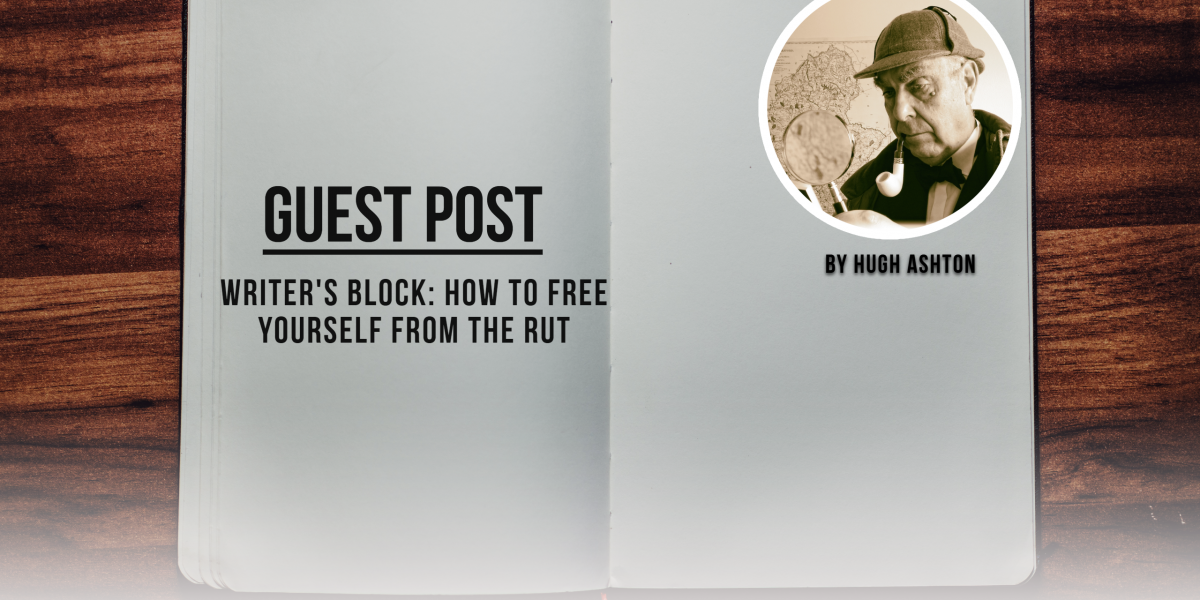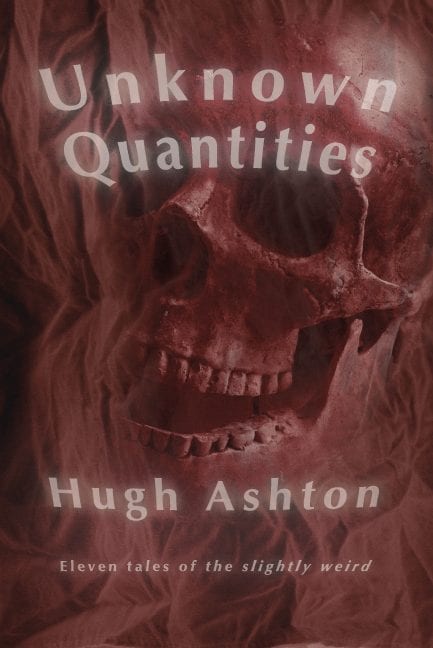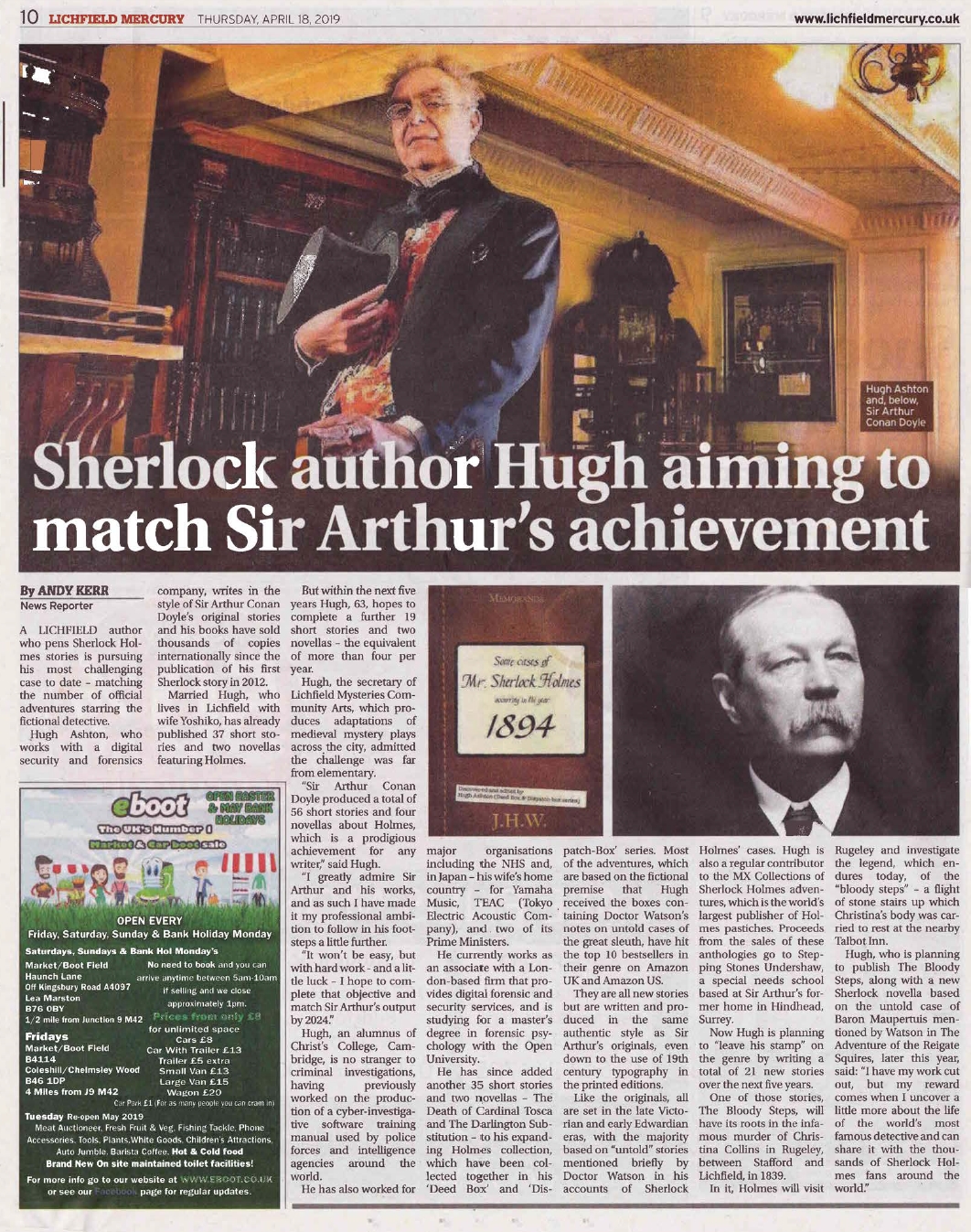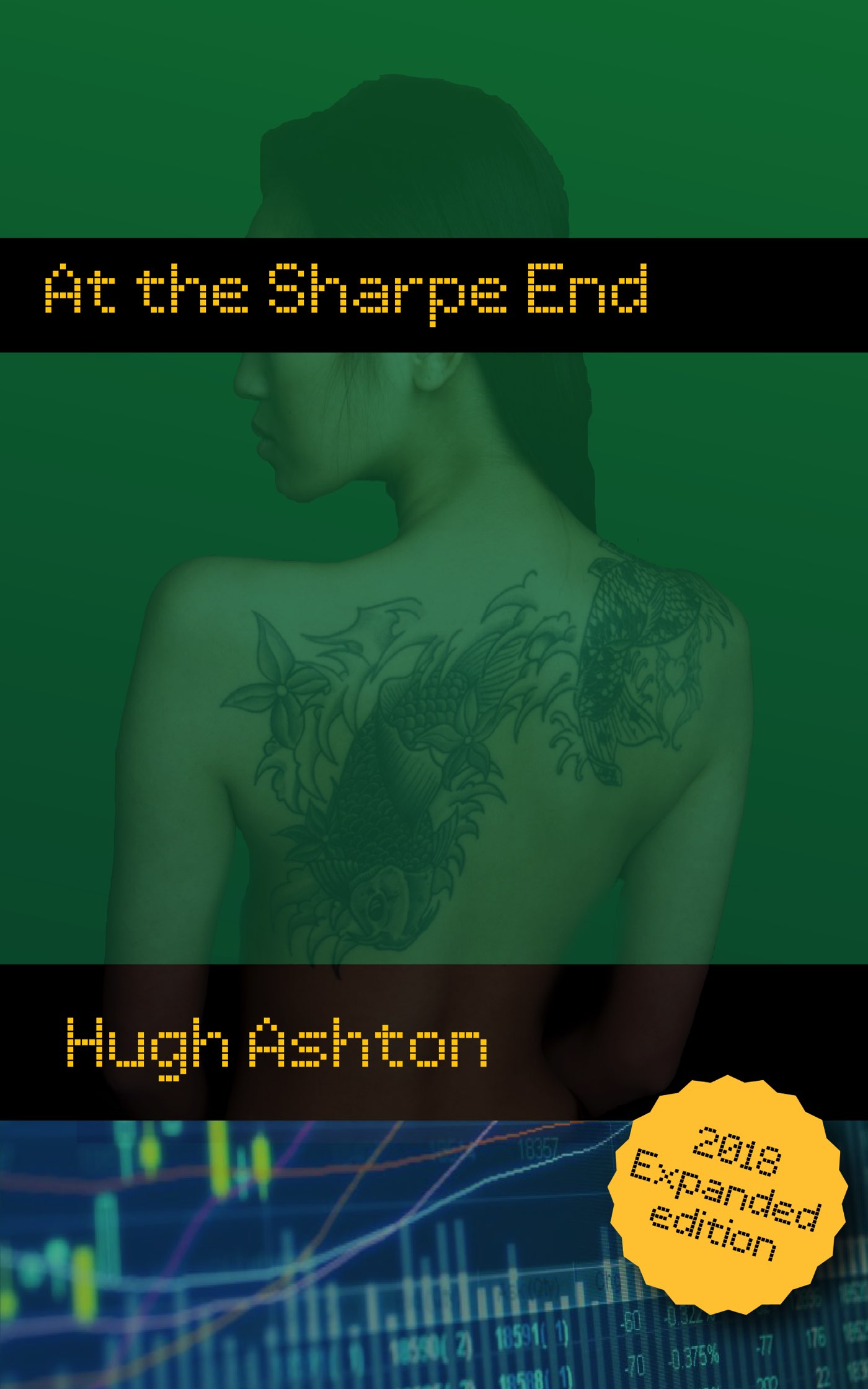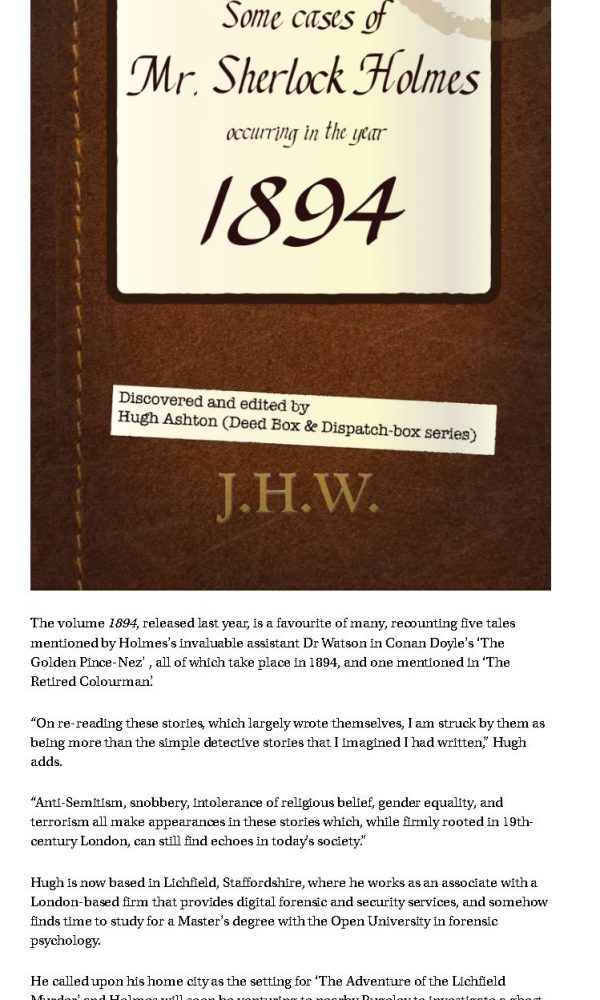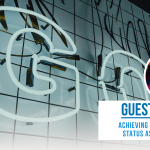Why Getting Unstuck is Elementary
By Hugh Ashton
After the success of almost 30 critically acclaimed novels, the prodigious British author Hugh Ashton, whose Sherlock Holmes pastiches have sold tens of thousands of copies worldwide, has penned Unknown Quantities, a series of dark short stories. To mark the book’s publication, Hugh reveals the driving force and inspiration behind his decision to branch out into a new sub-genre he describes as, “the slightly weird”.
It’s easy to get stuck in a rut. I love writing Sherlock Holmes pastiches, and I’ve ventured into the 19th century (and even the 15th) on a number of occasions, but one genre that has remained closed to me for some time has been the weird/horror genre. I’m not a fan (putting it very mildly) of tales of blood and gore and dismemberment, but I do confess to liking most of H.P.Lovecraft’s work, a lot of Clark Ashton Smith, and much William Hope Hodgson, a good proportion of all of which discusses what happens on the other side of the mirror.
Hugh Ashton, the secretary of the Lichfield Mysteries Community Arts, is best known for his Sherlock Holmes pastiches such as 1894, which have sold thousands of copies internationally. His new book, Unknown Quantities, is out now.
Mirrors and reflections are, of course, somewhat magical, as Susanna Clarke reminds us in Jonathan Strange and Mr Norrell, a book I wish I had written. Borges also mentions in a story in his Labyrinths collection about a (possibly invented by Borges) Chinese legend whereby an ancient emperor imprisoned demons behind mirrors and forced them to imitate the looks and actions of those looking at the mirror. The magic is weakening, says Borges, and sometimes you can hear strange sounds coming from behind the mirror. One day the demons will escape and wreak their vengeance on the world.
This last idea has stuck with me for some time, as have the ideas of beings lurking on “the other side” (of what or where, I am not entirely sure) and I explored this idea in my 19th-century science-fiction novels, The Untime and The Untime Revisited (links are to ebooks – the two novels are also available as one paperback volume). In the first of these, the focus was very much on a Wellsian or Vernian exploration of technology, and the other dimensions could be explained by means of (somewhat nonsensical) scientific analogies. The second book took a darker, more Jungian turn, whereby psychology and psychiatry were more prominently featured. Perhaps unsurprisingly, a female protagonist was more to the fore in the second than the first.
Above: Ashton has received widespread media coverage for his works, which also include the acclaimed At the Sharpe End, right.
But when I looked back over some of the shorter pieces that I had written for the Lichfield Writers group, and subsequently revised, I saw that in fact many of them followed the same pattern – something lurking on the other side. Also to my surprise, the gender balance was more evenly spread than I imagined. Out of the eleven stories that I chose to include in Unknown Quantities, five had male protagonists, three female, and three were unspecified (first person).
The settings ranged from a 16th-century Genoese galley (thanks to a Facebook comment by John Linwood Grant which was intended to be flippant but which I took seriously), through a pastiche of William Hope Hodgson’s ghost-hunter Carnacki (described by one critic as “pitch perfect”), to contemporary England, including Lichfield, the city where I’m living.
But truth to tell, I didn’t consciously feel that I was entering a new genre. I described these as “tales of the slightly weird” and that’s still how I feel about them. Not really a new genre, just a few slightly weird views of the world, which I enjoyed writing. With luck, people will enjoy reading them.


